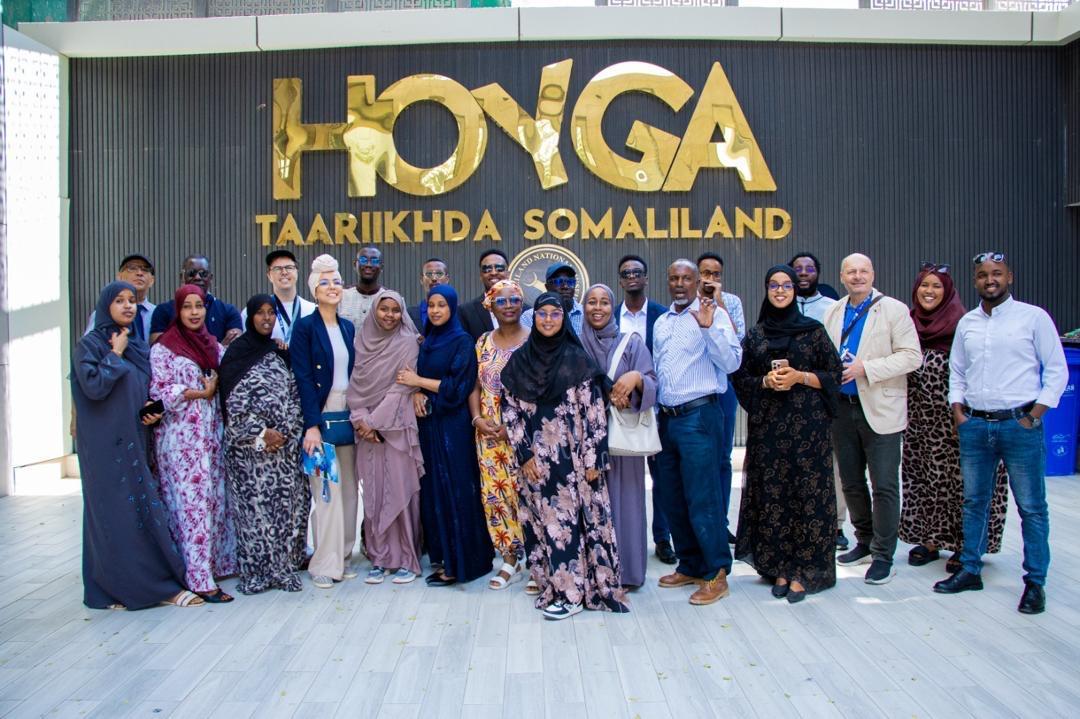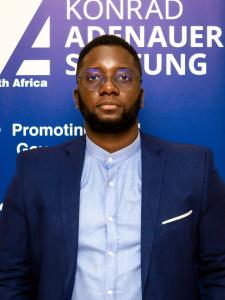Under the North, East, West and South (NEWS) initiative, the Regional Programme for Political Dialogue in Sub-Saharan Africa (PolDiSSA) of the Konrad Adenauer Stiftung (KAS) has brought together members of civil society movement, think tanks, political leaders and journalists from the four extreme parts of the continent. This 4th and final edition of NEWS, like the precedents, brought together leaders of opinion from all Tunisia, South Africa, Senegal and Somaliland to discuss and find solutions to common challenges. The first edition took place in South Africa in 2022, followed by the 2023 edition in Tunisia, then in 2024 in Senegal and lastly, the 2025 edition in Somaliland. Under the theme, “Journalism in the Age of Transformation: Innovation, Resilience and Accountability” hosted in Hargeisa from the 7th to the 9th of April 2025, opinion leaders from those countries were brought together to discuss how the changing world order is unravelling and impacting African citizens. But also, it’s impact on political dialogue and freedom.
This discussion was anchored not just on journalism and its practice but aimed to provide a space for dialogue on how the various issues (raised in the programme) create a wicked problem in our societies. And the role of opinion leaders and how they communicate these issues to the citizens.
Dr. Kamel Ben Younes, a veteran journalist from Tunisia, opened the forum with what became a touchstone throughout the sessions: journalism must be rooted in professionalism, pluralism, foresight, and trust. Yet for many in attendance, these ideals seemed distant from day-to-day reality. In Somaliland and many other parts of the continent, journalism has become a fallback occupation rather than a chosen vocation.
Most journalists have no formal training. There is little thematic specialization, and almost no capacity for investigative depth. One participant aptly put it: “We don’t just need ethics—we need expertise.”
Naima Abdi, an award-winning journalist highlighted the unique challenges faced by women in Somaliland, whether it is as journalist or in the political sphere. The uphill battle for inclusivity faced by women in Somaliland is two-fold. One of the most potent examples discussed was the impact of clan structures on women’s political participation in Somaliland. Because women adopt their husband’s clan identity upon marriage, clan elders frequently block them from nominations—effectively silencing female voices in political processes. At the same time, Somaliland’s lack of international recognition hinders its ability to adopt and implement continental frameworks such as the Maputo Protocol on Women’s Rights. But in a classic demonstration of African solutions to African problems as they must contend with local realities; women activists are turning inward in the face of such continental and global institutional inertia. They are doing so by leveraging Sharia-compliant interpretations offered by a respected female religious scholar to advocate for social rights. This reflect Somaliland personality, it is an innovative and culturally grounded strategy, and while it may not immediately resolve female political marginalization, it signals a new era of agency and adaptation. But falls short of the support it requires to advance due to Somaliland lack of recognition.
Despite the strong case and evidence in its favour, Somaliland recognition in the global stage remains elusive. As such, one key proposition made by a participant was that Somaliland adoption and implementation of continental frameworks such as the Maputo Protocol, would send a strong signal and provide the right incentive toward this cause. Delegates were able to visit Somaliland and discover the vast potential it has to offer to the African continent, its rich history but also the vibrant effort of its citizen palpable at every interaction.
Another key shared concern by all present was that funding remains the Achilles' heel, today more than ever, with the disappearance of institutions such as USAID. Traditional media outlets, think tanks and NGOs are struggling to stay afloat while ideologically based content creators, digital influencers and non-profit thrive on viral content and opaque sponsorships. It is a brutal irony that those who manipulate facts are often more financially secure than those who seek to report them.
One of the most alarming examples came from the case of Kenya, where The Standard Group, a media house was subjected to editorial censorship and fund withdrawal after publishing unfavourable reports on Chinese enterprises local practices. The message was clear: foreign influence in African media is subtle but far-reaching—and growing. Similar concerns were raised about increasing media penetration by actors from Turkey, Russia and more, you can read more on this here . Disinformation, often disseminated through social media and AI-generated content, has become a powerful weapon in a broader geopolitical contest for hearts, minds, and allegiances of the African people. Perhaps the most sobering segment of the forum came with the recognition that Africa is currently a battleground of ideas. From French and Russian media jockeying for influence in Mali, Burkina Faso, Central Africa or Niger, to AI-generated deepfakes of foreign leaders speaking local dialects, the continent is both a subject and a medium in the global war for narrative control. And in many cases, local leaderships weaponize this information chaos to deflect from their own failings.
These methods are not just a threat to journalists, but to the very stability of democratic institutions and citizen’s freedom. Against this backdrop, a new method is emerging—solution journalism. Far from being a utopian ideal, it is a practical response to despair. This approach focuses not merely on problems but on how communities respond to them, thus restoring agency and nuance to public discourse. Its adoption may prove critical in fragile environments where audiences are fatigued by relentless negativity. Meanwhile, discussions also focused on the exodus of skilled journalists into public relations, driven by declining salaries and job security. This brain drain not only weakens newsrooms but feeds into the broader trend of agenda-driven reporting, where the line between journalism and propaganda becomes increasingly blurred. These has resounding impact on political dialogues at national and international level.
Yet amidst this storm, the Hargeisa event offered an unexpected glimmer of optimism. Participants from opposite ends of the continent found surprising common ground. From all four corners, the challenges facing media—economic, political, and technological—are remarkably similar. This shared experience offers a foundation not just for solidarity, but for strategy. Moreover, this event provided a unique opportunity for fellow Africans to discover the nascent and emerging democracy that is Somaliland.
The event was concluded in a shared agreement that the private sector, civil society, and development partners must now step up. Journalism cannot thrive without economic oxygen, and the market alone will not provide it. In a world where disinformation travels faster than truth, the resilience of journalism must lie in its accountability—to the facts, to its audience, and to itself.




